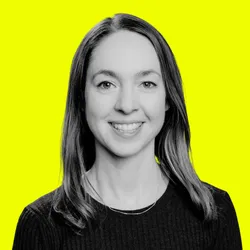Originally written in 2018. Updated in September 2024.
By 2018, social media had taken over the world. Facebook had over 2.4 billion users. YouTube was the second largest network, with nearly 2 billion users and tools. TikTok, Reddit, Twitter, and Snapchat were increasingly becoming intertwined with our lives. To put those numbers in perspective, almost a third of the world’s population was on Facebook in 2018. And in 2024, over 60% of the world’s population uses social media.
Thinking about privacy and how we share ourselves online inspired me to write about our very public world. Reality TV and the idea of broadcasting personal updates is not a new concept. Candid Camera first appeared on TV in 1948! More famously, The Real World aired in 1992, allowing us to watch a group of strangers living together in a shared house. What's changed since reality TV captured our attention thirty years ago is accessibility. Smartphones, social apps, and creative AI tools allow everyone to share and promote their 'worlds.'
Our attitude to the social universe continues to be conflicted. We put time limits on apps, swear off social media or take a digital detox while simultaneously looking for YouTube reviews of products to buy or posting on LinkedIn in the hopes of building our personal brand. What’s the right balance? I don't have all the answers, but this article aims to make you think about what we’re creating, who owns it, and how we use these tools to connect with each other and our customers.
Anything is possible except your ability to disconnect.
Josh Harris launched Pseudo.com in 1994 to livestream video content via the web. Artists and presenters had creative reign, and the channels ranged from the latest hip hop to romance, sports and games. Viewers chatted with presenters in real-time, well in 1994-internet-dial-up time. Pseudo used audience data to tailor content and take traffic from established networks, as Netflix has done today.
In 1999, Josh Harris launched his next project, a big-brother-style experiment named Quiet - We Live in Public. 100 willing volunteers, including the founder of MoMA PS1, Alanna Heiss, agreed to sleep in capsules in an underground bunker in New York. Josh set up cameras to film the volunteers 24 hours a day for 30 days. Both Pseudo and Quiet were the beginning of reality TV as we know it.
Initially, the volunteers enjoyed their new environment, connecting, creating and exploring. But by the end of the 30 days, their creative spirits turned into depressive and destructive tendencies. I recommend watching the documentary We live in Public, which is about Josh’s life and experiments. It provides a view into the early days of the web in 90s.
When privacy no longer exists, who owns us?
Whether Josh intended it or not, his live TV experiment was a warning regarding the dangers of seeking virtual fame on our sanity. He foresaw that we would share our lives daily, using the web as a tool for both creativity and self-validation. As stated, when guests entered Quiet, "much is free except your image, your data and your ability to disconnect."
"The party of a century will only cost you your privacy.”
30 years later, in 2024, we have conceded pieces of ourselves to the web. Although most of us don’t live stream from the bathroom, we give up parts of our lives daily. Today, technology makes it easier than ever to record, document, film, and write about our lives in the virtual world. We share photos, opinions, videos and our GPS location through TikTok, Instagram, YouTube, Reddit, Discord, Siri, or Alexa.
This fascination with each other’s lives and tailoring our own highly curated virtual lives continues. But it raises questions about accountability:
- Who owns our information?
- Can we rely on governments to create regulations like GDPR, social networks like Facebook to protect our data?
- How do monetization strategies impact what we see or read?
The new public is both empowering and destructive.
The very public world we live in has become valuable. It’s helped shed light on important issues, such as sexual harassment or mental health struggles. We gain strength in numbers by sharing stories and offering each other support in public rather than behind closed doors. It is easier to understand and address problems that we're aware of.
The web also provides a platform to share knowledge on the spread of disease or natural disasters so that we can find solutions and overcome them. It helps us build relationships, find lost relatives, and access free education. The web allows every user to connect, create, and cross ‘physical’ borders.
However, as predicted by Josh Harris, that same influential system also feeds our obsession with false idols. It can be detrimental to mental health. Cyberbullying, spam and clickbait all turn our desire for connection and instant gratification against us. The web enables the spread of fake news and the creation of destructive movements and fear.
What kind of public will we create?
Our online world continues to evolve around us. With the influx of AI tools, there are even more concerns around transparency, privacy and the spread of misinformation. The question remains, how we can create a positive space for everyone that encourages raising awareness of important issues and fostering connection? Let’s work together to build the public we choose, not one we must learn to survive in.




